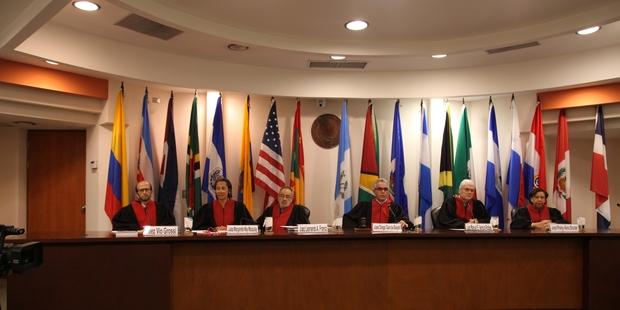The Inter-American Court of Human Rights (IACtHR) delivered its judgment on the case of Tulio Álvarez v Venezuela. The judgment sets an important precedent on criminal prosecution of reporting in the public interest.
Mr. Álvarez is a Venezuelan constitutional lawyer and university professor who was criminally convicted of “ongoing aggravated defamation” in respect of a column he published in a local newspaper regarding the alleged misappropriation of funds from the National Assembly’s Workers’ and Retirees’ Savings Bank. The criminal case against him was brought by a former congressman, and then-president of the National Assembly, who Mr. Álvarez had suggested in his column was responsible for the misappropriation of the funds. In February 2005, Mr. Álvarez was sentenced to two years and three months in prison, and disqualified from holding public office. When his sentence of imprisonment was later suspended, he was barred from leaving the country during the probationary period that replaced the suspended prison sentence.
The IACtHR considered that Mr. Alvarez’ column was relevant to the public debate because it referred to the plaintiff’s work and functions as president of the National Assembly, as well as to the use of public funds. Furthermore, the IACtHR considered that Álvarez’s expressions are protected despite their critical tone and caustic language: “criticism towards civil servants are not only valid but necessary”, said the Court.
The IACtHR also strengthened its position regarding the use of criminal sanctions as a means to punish speech. The IACtHR reasoned that states can only use criminal sanctions in the most exceptional cases, and not to protect honour in cases relating to speech that is in the public interest as this would inhibit reporting regarding violations of the law, such as corruption or abuse of power. This is an important step forward after the IACtHR’s previous judgments on the use of criminal sanctions.
An amicus brief submitted by Media Defence, PEN International, PEN America, PEN Mexico, PEN Quebec, Media Law Resource Center, Fundación para la Libertad de Prensa (FLIP), and Human Rights Watch highlighted the increasing international recognition that criminal defamation laws are incompatible with international standards on freedom of expression. The intervention argued that criminalisation of speech should be a measure of last resort in exceptional circumstances, limited to instances of hate speech and incitement to violence, and that criminal defamation laws should be abolished to prevent abuse of such laws, such as in Mr. Álvarez’s case. Finally, the intervention noted that even civil defamation laws can have a chilling effect on freedom of speech if penalties imposed are overly harsh.
Recent News
Landmark Ruling: Kenya’s High Court Declares Colonial-era Subversion Laws Unconstitutional
Media Defence welcomes the verdict of the High Court in Nakuru, striking down sections of the Kenyan Penal Code which criminalise subversion, citing them as relics of colonial oppression that curtail freedom of expression. Justice Samwel Mohochi, delivering the judgment, asserted that these provisions were overly broad and vague, stifling dissent rather than serving any […]
UN Rapporteurs Call for Protection of Brazilian Journalist Schirlei Alves
UN Rapporteurs Call for Protection of Brazilian Journalist Schirlei Alves Amid Defamation Charges Stemming from Rape Trial Coverage A letter dispatched by UN rapporteurs to the Brazilian Government calls for protective measures for women journalists covering cases of sexual crimes. The letter also denounces the conviction of Brazilian investigative journalist and women’s rights defender, Schirlei […]
Convite à apresentação de candidaturas: Cirurgia de litígio em português na África Subsariana
Cirurgia de litígio em português na África Subsariana Aplique aqui 23 a 25 de julho de 2024 em Nairobi, Quénia Prazo: 3 de maio A Media Defence está a convidar advogados sediados na África Subsariana que falem português a candidatarem-se a participar numa próxima cirurgia de litígio sobre o direito à liberdade de expressão e […]



